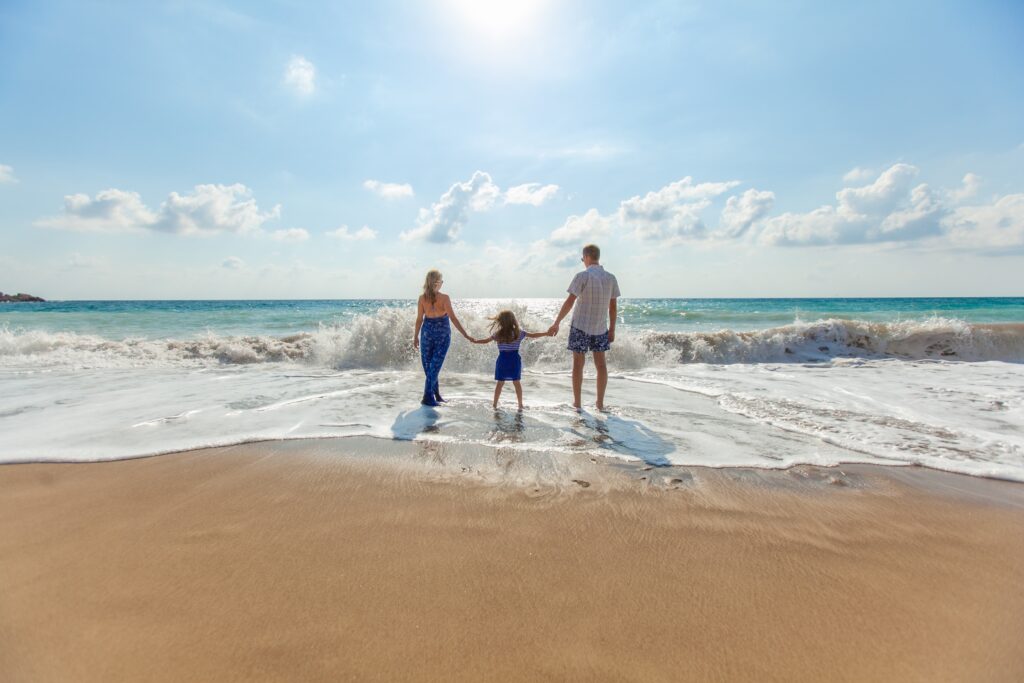Cayman: The Place To Be?
As a financial services professional or business in 2020, one of the most topsy-turvy years most of us have ever experienced, how attractive is the Cayman Islands right now as a place to live, work and do business?
Having done a significant amount of research via the Cayman Compass and various other sources, we thought it would be interesting to pull together the (overwhelmingly positive) messages, statistics, stories and articles to emerge over the last couple of months.

COVID-19
As far back as late-March, a Forbes article was widely shared across the globe praising Cayman’s response to the early part of the COVID-19 crisis. As the author wrote: “as coronavirus trickled its way into the Americas, Cayman began what has come to be recognized as one of the most proactive and decisive disease containment strategies in the hemisphere”
The government has continued in this vein, prioritising the health of their citizens above all else, including making very difficult decisions (e.g. delaying the opening of the borders) which were guaranteed to draw criticism from some.
On August 12th, after 30 days with no new positive COVID-19 tests, Cayman was classified as officially ‘COVID-free’ by the Pan-American Health Organisation. Unfortunately additional tests carried out a week later reported two positive results, with two separate travellers arriving in Cayman on different flights having tested positive as part of routine screening on completion of the mandatory isolation period, moving the status back to ‘Sporadic Cases’. As of August 19th Cayman has had a total of 205 confirmed cases (0.3% of the population) and 1 death, with 33,617 people tested (roughly 52% of the population)
Viewed in comparison to other notable nations with strong links to Cayman, this makes for extremely positive reading:
- USA: 5.477m positive cases (1.7% of population), 172,033 deaths, 22% of population tested
- UK: 321,102 positive cases (0.5%), 41,397 deaths, 22% of population tested
- Canada: 123,490 positive cases (0.3%) , 9,049 deaths, 13% of population tested
- South Africa: 596,060 positive cases (0.3%), 12,423 deaths, 6% of population tested
Due to the swift measures imposed in the Cayman Islands, life here is now very close to normal. This is somewhat different to many other places in the world, and various countries and cities have recently re-entered strict lockdown measures, including Auckland, Melbourne and Hong Kong. Cayman is still enforcing social distancing and the wearing of masks in public, but bars, restaurants, beaches and hotels are now open to residents. Furthermore, many sports have resumed, workplaces are opening up and public gatherings of up to 50 people are permitted.
A collective sigh of relief was also heard around Cayman recently when rumours of the government imposing some sort of direct taxation on residents to help offset the costs of tackling Coronavirus were resoundingly quashed. Finance Minister Roy McTaggart stated that Cayman’s “indirect tax regime is well established and supports robust levels of economic activity, and the government does not see the need to make any changes to this regime”.

The economy and business environment
The government recently announced that Cayman’s economy is expected to contract by 7.2% in 2020 before recovering with a 6.4% expansion in 2021. This is due in large part to a 74.6% decline in the tourism industry, however the traditional powerhouses of finance and business services were expected to experience a far more modest decline of 3.8% and 1.7%, with recovery forecast for 2021. The government remains publicly bullish, with the Finance Minister recently reporting that “given significant reserves in the treasury, we are, and continue to be, well placed and well prepared to face the fiscal challenges that were wrought upon us by COVID-19”.
When compared to the economic outlook of other countries, again this looks pretty favourable. The UK has recently announced they are back in recession for the first time in 11 years and suffered a 20.4% shrink in the economy in Q2 compared to Q1. In the US, 16 million jobs were lost in the United States in a 3 week period in March/April and Real GDP was forecast to fall at a nearly 38% annual rate in the second quarter. US Real GDP is not expected to return to 2019 levels until 2022 at the earliest.
Cayman is the world’s largest hedge fund and investment fund domicile. Almost 11,200 private funds registered with our financial regulator, CIMA, this year. This is a big increase on previous years due in large part to the new Private Funds Law (more on that in a moment). July saw one of the best performances on record for the hedge fund industry; the HFRI Fund Weighted Composite Index’s 3.24% return last month was its third-best monthly performance since September 2010. Although there were major losses during the Q1 coronavirus sell-off, the index has gained for four consecutive months and almost returned to positive territory at -0.27% return for the year to date.
Cayman was the subject of ignominious headlines back in February regarding their ‘blacklisting’ by the EU as a non-cooperative tax jurisdiction. This was a blow to an otherwise very positive last few years during which the Cayman Islands has made massive strides with regards to tightening up their regulatory environment and shaking off the unfair reputation as a shady offshore finance hub. In response a number of bills have been passed and published by the government, almost all of which address areas of concern which were flagged by the EU. One of these bills is the Private Funds Law, requiring certain funds to register with CIMA and give them enforcement power. They will now have to submit audited accounts, have appropriate internal asset-valuation procedures, and proper custodial and cash-monitoring processes. This is bound to have a positive knock-on effect on other areas of the finance sector as fund administrators, fiduciaries and audit firms will see an increase in demand for their services. In summary, Cayman continues to strike an excellent balance between creating an attractive environment within which these funds can operate while also creating a thorough regulatory environment.
Elsewhere we saw positive news within the Captive insurance market when CIMA produced their Q1 figures in May. It said the data showed robust growth in the sector, despite the pressures of COVID-19, and we ended Q1 2020 with 8 newly licensed insurance companies. As of March 31st there were 660 non-domestic insurance licencees under CIMA supervision. The Charmain of the Insurance Managers Association Cayman (IMAC), welcomed the diversity in license types issued by CIMA in Q1, which he said “speaks volumes as to the progressive reputation the jurisdiction has”.
In recent weeks we have seen a number of new businesses being launched in the Cayman market, which speaks volumes about business confidence here. These include:
- Saffery Champness launching a trust and corporate services business
- Intertrust launching a law firm
- DMS combining with two fund management companies in Luxembourg/Dublin to create a global governance and third-party management company.
Away from the cubicles and oak-panelled boardrooms of traditional financial and legal services, Cayman Enterprise City continues to do great work in fostering entrepreneurship and cutting-edge industry in Cayman. They are a business hub designed to enable companies from across the globe to set up and operate easily and efficiently offshore, with a genuine presence here. They house companies in a diverse range of industries including Internet, blockchain, media, science, technology and trading. They recently announced their ‘LaunchLabs’ initiative, designed to allow entrepreneurs to test new technology products, products and services in a realistic environment, with real consumers, before being brought to market.
I hope this article has provided some cause for optimism, whether you are already based here in Cayman and wondering what the short-term future holds, or if you are overseas and teetering on the edge of making the move.
Special thanks must go to Michael Klein, the Business Editor of the Cayman Compass, who’s excellent work was the source for much of the content used in this blog. You can see his profile and articles by visiting https://www.caymancompass.com/editorial-staff/michael-klein/
